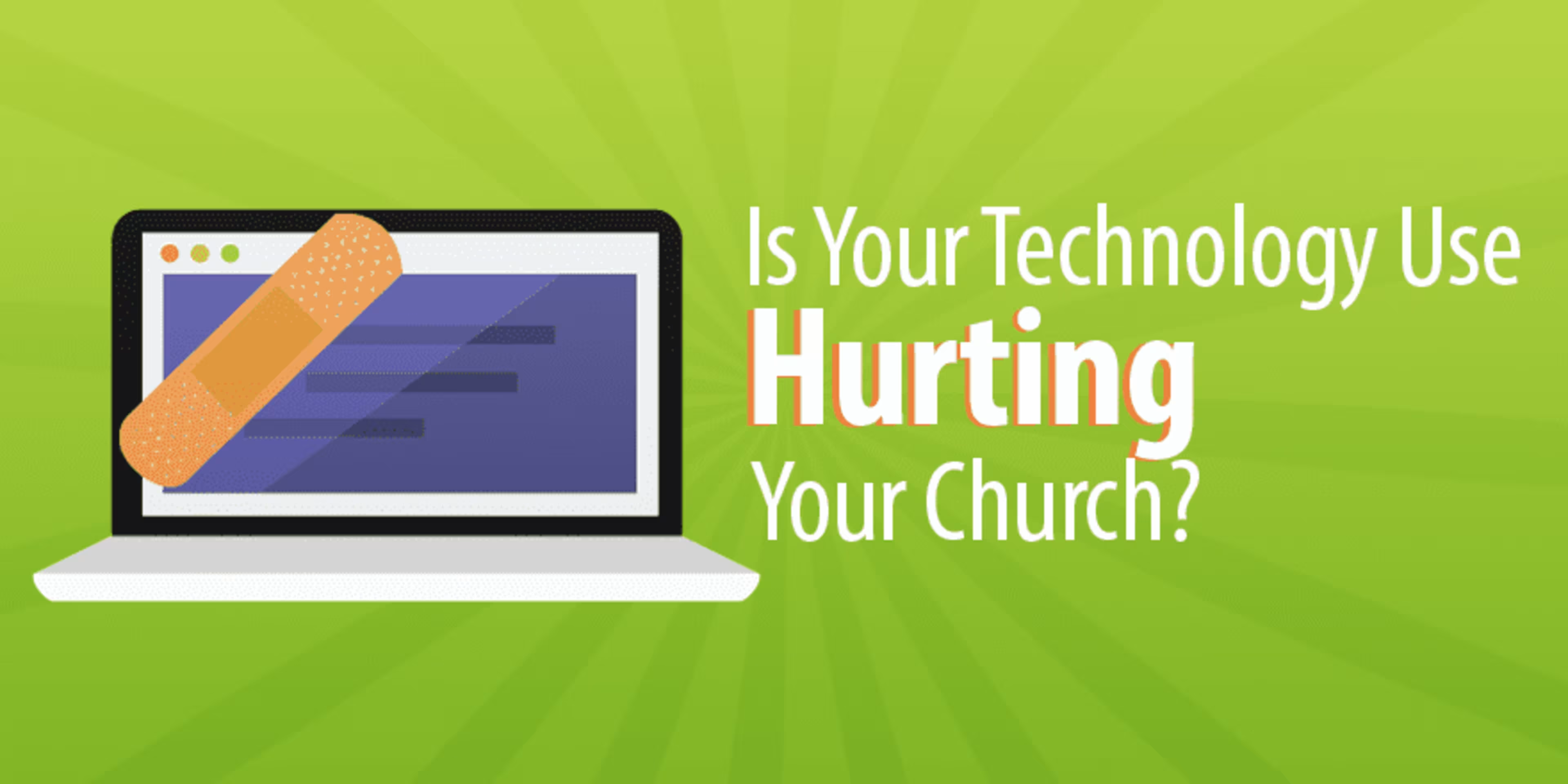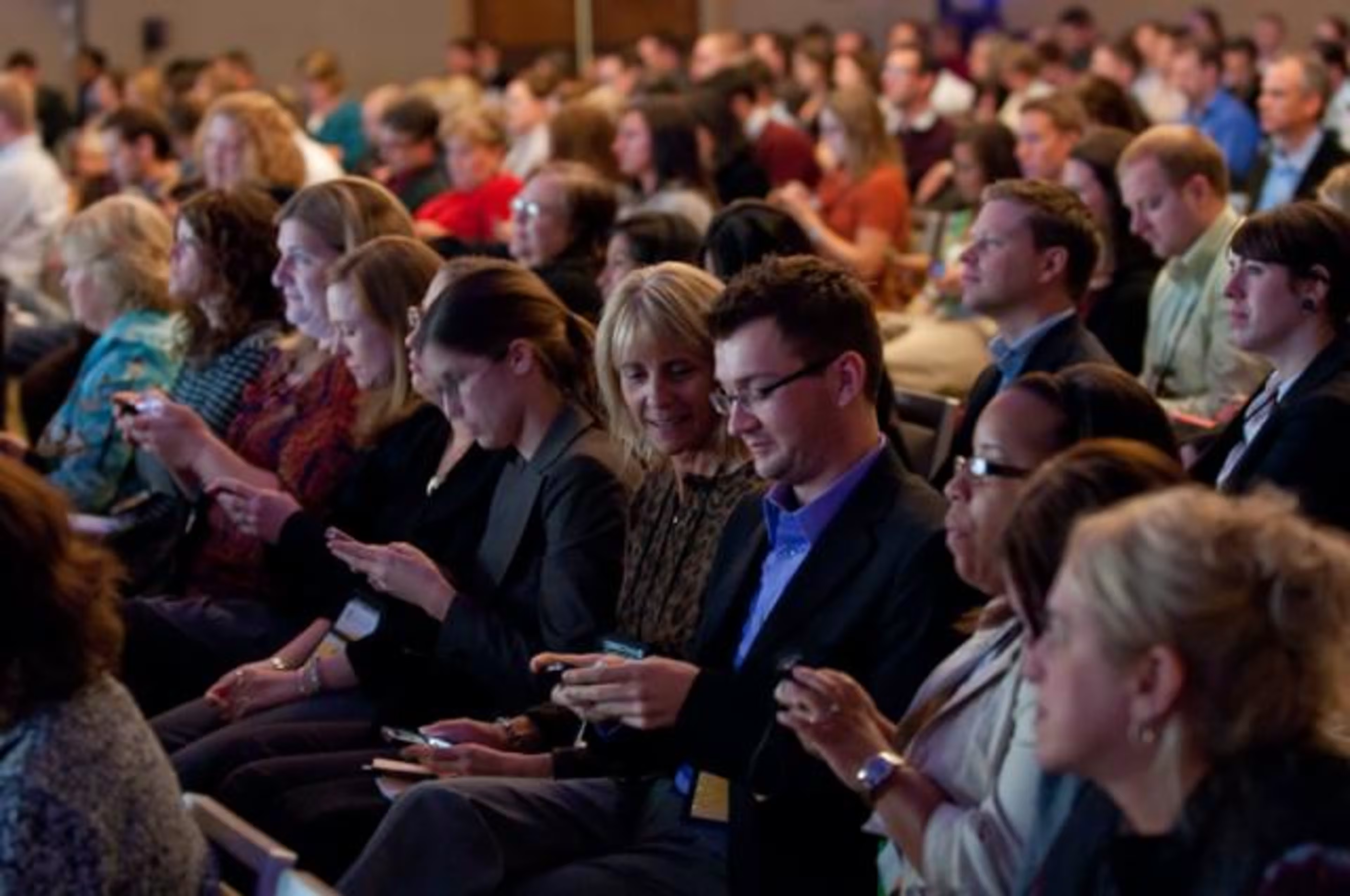There are countless articles and statistics online showing how technology can help churches with administration, worship, and communication. We write about it a lot here at Capterra.
But are there downsides to all of this technology? Is it possible that while it may be aiding worship in some ways, it could be hindering it in others?
According to a 2011 Tyndale University College and Seminary survey, 35% of church leaders believe that churches are too focused on technology, 13.6% believe that there are more important things to focus on than technology, and 11.5% believe that technology distracts people from worship.
Since that survey was completed, smartphone ownership has more than doubled from about 35% of American adults to 77%.
Pope Francis himself recently said that "It's so sad when I'm celebrating mass here or inside the basilica and I see lots of phones held up."
He added: "At a certain point the priest leading the ceremony says 'lift up our hearts'. He doesn't say 'lift up our mobile phones to take photographs'—it's a very ugly thing."

What are the negative effects of technology in church?
These days, we have everything at our fingertips. Answers to any question are just a Google search away. While incredibly useful, this environment has fostered self-reliance and reflexive turning to the internet instead of seeking out other people for help.
In church communities, the same logic applies—instead of going to a pastor or spiritual leader for advice, most people open up the web for answers.
While the internet and technology in and of themselves aren't bad, they become a problem when technology becomes a substitute for human interaction. Connecting and interacting with other humans face-to-face is essential for life, and for churches.
For churches, technology enables email marketing, church management software, and the automation of various administrative tasks. Technology helps churches run smoother and be more efficient. But, it can turn into a roadblock to deeper human relationships if it prevents people from interacting with each other.
Worshiping, reading and discussions, and asking questions are crucial to church and spiritual development. Having such interactions over text, email, or social media is not as effective or valuable. Information overload can actually hinder communication as people will delete messages or updates before reading them if they feel bombarded.
A church can't reach people if their message is automatically dismissed. The challenge is defining the gray area where technology becomes overused.

A familiar sight in church and everywhere else.
Doug Henry, a professor at Baylor University, says that mobile technology has the tendency to “divide, distract, and cause people to focus on self." Why? Technology has changed the way we think and work. We have shorter attention spans, and demand instant gratification.
This makes focusing in general more difficult. It's harder to focus on sermons or pray for extended lengths of time, all because we've trained ourselves to pay attention in short bursts. The constant availability of technology means a collective, constant pull toward our phones to update a status, download an app, and put everything we're doing on the web.
Instead of just doing something, people feel the need to simultaneously share the “doing" online. This applies in church well. How focused can a congregant be if they're tweeting about the sermon while listening?
What forms of technology are the most harmful?
The use of video technology makes at-home church attendance increasingly available to congregations. These days, many people are asking the question: "Why go to church when I can watch it online in my pajamas?"
This is an issue that pastors haven't faced in the past. Sure, congregants viewing your services online are still hearing your message, but the lack of physical presence affects the people who do show up, and surely affects the service itself. There is an obvious lack of community when people aren't present.
Tim Stevens from Granger Community Church says there are many reasons you should physically go to church:
“If going to “church" once a week was just about gaining what you need spiritually to make it through another week, then tuning in online would be just fine. You could get what you need on Christian radio, reading books, studying the Bible or watching your favorite TV preacher. But the purpose of church is so much broader than that. It is about corporate worship, praying and studying the Bible together, serving one another, and reaching out in mission together. This can't be done in isolation."
Social media is another form of technology that can harm churches if it isn't used the right way. When people instantly post impressions and thoughts to their social media accounts, mistakes can be widely publicized. This can lead to false doctrine and gossip spreading, as well as truth distortion. Antoine RJ Wright of Mobile Ministry Magazinesaid:
“I don't know that I'd consider any forms of technology harmful. I'd consider types of usage harmful. For example, I don't see a problem with using social networking services to talk about whatever the message is during a sermon/bible study. I do see it as a problem if the person(s) using social media aren't also keeping notes themselves, or using their social platform to not just inform folks of their adherence to the faith, but also lead others to growing in the faith. If you will, when the tech or tool only points to personal development, and the community cannot be pointed to where it helps to disciple others, then it's leading into those harmful spheres."
When is technology the most harmful to churches?
Technology can cause communication issues, both inside and outside of church. But when it comes to church services, incorrect usage can seriously distract from service aspects like prayer, and cause attention levels to wane. Antoine RJ Wright adds:
“Computing technologies feel harmful when others in our communities don't understand them. We can't just be users of the current/next greatest thing and not offer some of that training and insight to those who might be slower to understand. We would do well to also listen to the concerns that those persons have. In their slowness to adopting our tools and behaviors, they can usually point us to where we are leading into prideful or unhealthy areas."
Many churches implement new technological practices to appeal to younger generations. This shouldn't be the only reason you embrace technology, though. While trendy tech may generate a short-term attendance boost, it could undermine your true mission in the long run.
Has technology caused a shift in traditional worship?
Advances such as video announcements have resulted in a noticeable shift in the way that people worship. Church creative director Jeremy Poland has three suggestions to make this shift work for you: keep video announcements brief, know your audience, and don't obsess over tech.
In our interview, Antoine RJ Wright elaborated:
“Traditional worship is a touchy term. Where we think it was traditional for everyone to have a bible to read, it's only been a few hundred years where non-wealthy congregants had an ability to read the bible, let alone own more than one. Where we see traditional behaviors in churches as sharing announcements as part of the service, it was first something done before or after the service, as the service itself was revered as time to discuss God-matters. So tradition—at least how we practice faith in many of our Western churches, is changing just as it always has."
When you use technology to make church a more fun, enjoyable, and entertaining experience for yourself, you might as well go see a movie or concert rather than go to church.
Am I saying that technology itself is bad? Not at all! Extravagant uses of technology during a church service can be detrimental, and turn worship acts like prayer into something resembling entertainment. As Joey Cochran from Redeemer Fellowship in St. Charles, Illinois, says:
“. . .there is a vast distinction between enjoying a popcorn movie like X-Men: Days of Future Past and transforming church into a “popcorn event": an hour of entertaining videos, funny skits, a rock concert, and a moving 20 minute pep talk—all to satisfy the hunger of the people. The masses may be entertained, but such pragmatism diminishes the historic creeds and confessions, the doctrines of grace, and the right administration of the sacraments."
Is technology use hurting your church?
How has technology helped, or hindered, your church? What measures have you taken to ensure that your church gets the benefits of technology without diluting your main purpose? Let us know in the comments below!
If you're eager to learn more about the crossroads of church and technology, check out these articles: